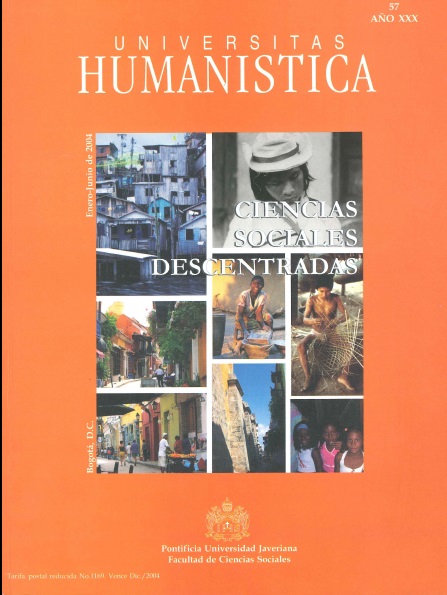Abstract
En el contexto las políticas culturales, el multiculturalimso ha sido un discurso que ha dinamizado las estrategias de sectores étnicamente diferenciados para reivindicar sus particularidades. En Colombia, minorías étnicas como los indígenas, lograron significativos reconocimientos formales luego de una colvulsionado y contradictorio proceso con las políticas indigenistas del Estado colombiano. Las estrategias desplegadas por el movimiento indígena y las desarrolladas por aquellos sectores de población en procesos de re-indigenzación convergen, general, sobre tres aspectos interesantes: una política de la memoria, una esencialización de los vínculos de la identidad étnica con el territorio y una discurso/práctica ecológica, que configura la imagen del eco-nativo. El artículo establecerá groso modo, en qué consisten las estrategias desplegadas por los comunidades indígenas para favocerse en tiempos donde la discriminación cultural ha sido un resultado de las políticas promovidas por el Estado colombiano.
This journal provides immediate open access to its content on the principle that making research freely available to the public, encourages greater global exchange of knowledge.
The journal Universitas Humanística is registered under a Creative Commons Attribution 4.0 International Public License. Thus, this work may be reproduced, distributed, and publicly shared in digital format, as long as the names of the authors and Pontificia Universidad Javeriana are acknowledged. Others are allowed to quote, adapt, transform, auto-archive, republish, and create based on this material, for any purpose (even commercial ones), provided the authorship is duly acknowledged, a link to the original work is provided, and it is specified if changes have been made. Pontificia Universidad Javeriana does not hold the rights of published works and the authors are solely responsible for the contents of their works; they keep the moral, intellectual, privacy, and publicity rights.
Approving the intervention of the work (review, copy-editing, translation, layout) and the following outreach, are granted through an use license and not through an assignment of rights. This means the journal and Pontificia Universidad Javeriana cannot be held responsible for any ethical malpractice by the authors. As a consequence of the protection granted by the use license, the journal is not required to publish recantations or modify information already published, unless the errata stems from the editorial management process. Publishing contents in this journal does not generate royalties for contributors.


